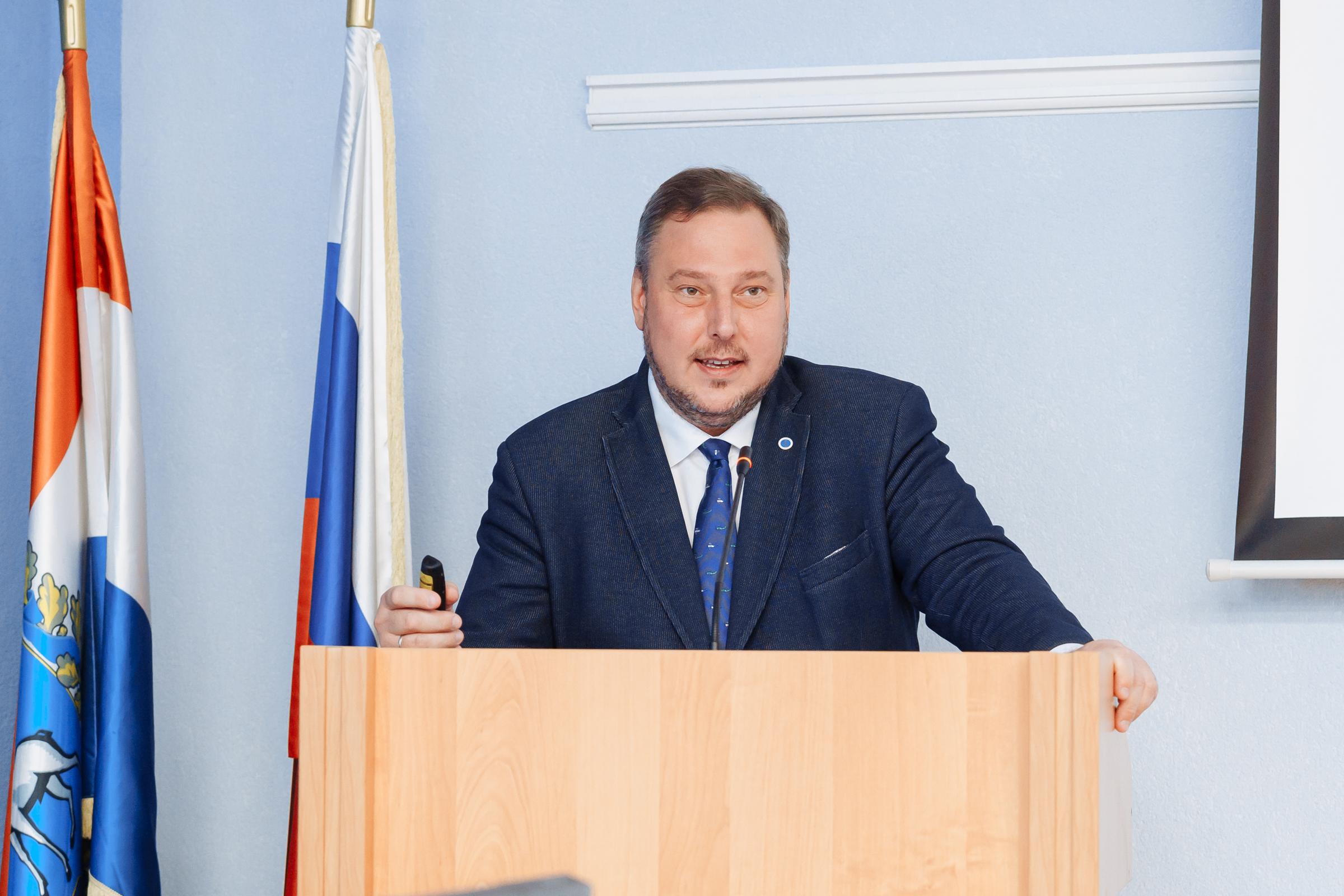The Vice-rector for Academic Affairs of Samara University told about how the University was able to train students on individual tracks, what "T-shaped" specialist skills are and how to get them, who and when should think about additional education, why a modern university is already much more than just a place of study Andrey Gavrilov.

— Higher education in the period of digitalization and intensive economic development dictates new trends. Which of them can you highlight in particular?
— Getting a high-quality basic education with the acquisition of additional skills in the course of a career becomes a priority. The second goal is to make sure that in senior years students receive the knowledge that they will use in real life, so that they come out as ready-made specialists and can immediately work productively. The third point is that digitalization is changing not only production, but also our lives in general, including approaches to learning. The fourth factor determining approaches to learning is demographic. The people will not become more numerous in the foreseeable future, which means that we must train universal specialists and retrain the older generation.
We must not forget about the challenges that the external situation poses to us in connection with the need for import substitution and ensuring technological sovereignty. We must create technologies that we previously preferred to buy, and this requires additional qualified personnel.
— When you talk about new approaches, do you mean individual tracks?
— That's right! We turn to personalization in order to reduce the adaptation time of a specialist in the real sector. Students now not only attend classes with a group, but also choose the elements of specialization, additional subjects that they study on a par with the main ones. For example, in digital departments, students can receive professional training in information technology, and those who choose information technology as their primary education have the opportunity to further deepen their knowledge. I would like to draw your attention to the fact that we not only focus on the voiced request of the student, but also, using artificial intelligence, analyze the educational track of a person: what he has already studied, what he was interested in. And we offer him options for further development both within the framework of those subjects that he studies, and within the framework of additional classes that may be useful to him, based on an analysis of the learning experience of our graduates and the state of the labor market.
— The topic of additional education, it would seem, is directly related to the shortage of personnel and the general aging of the population. Do you think that it is relevant not only for adults, but also for young people?
— Indeed, not only middle-aged people, who are now actively working and make up the core of the working population, but also students and even schoolchildren apply for additional education. In middle age, the acquisition of additional skills and competencies is stimulated by the desire to improve current work or is dictated by the fact that a person from line employees is climbing the career ladder and needs new knowledge related to economics, law or psychology. Sometimes a new qualification is required due to a fundamental change in the type of activity, because there are precedents when the former professions that people mastered 40 years ago, in fact, disappear, which means that people need a new specialty. But modern youth also understands well that in a world of rapid transformations, you need to run very fast just to stay in place. Therefore, even at the stage of obtaining their first higher education, they are already thinking about additional knowledge and skills.
— What are "T-shaped" skills and how will they favorably distinguish university graduates in the labor market?
— Due to the fact that everything is changing rapidly, including production, communication, organizational, and social processes, a person must have a wide range of knowledge. The term "T-shaped" specialists is a metaphorical definition of a specialist who knows one business perfectly and has some awareness in a related field. That is, he can not only operate a particular tool, but also, if necessary, carry out its simple diagnosis and adjustment. Or we have a lawyer with knowledge of foreign languages and the law of neighboring countries.
His broad outlook allows him to organize the workflow with a different quality, with greater reliability, efficiency and ultimately with greater economic benefit. In the absence of related skills, the employee's process will be much more difficult to build, additional people will be needed, which is completely unprofitable.
— We have touched on several global topics, but there is also a specific actor in the learning process — the student himself. How comfortable are they with such a workload and what are you doing to ensure that they remember the years of study at the university as a moment of immersion in their future profession?
— This is a complex issue, and it is primarily related to what a university is for students. The main process for a student is certainly educational. On the other hand, there is also science, social life, sports, culture — and the University offers all this to its students. Even our main offer — educational and scientific — adds up to more than one person can actually master. And there is also creative activity, which is also interesting for young people, and it is important for personal development. So the main problem of our students is that there are only 24 hours in a day and they do not have time to master everything that we are able to give them. We do everything to ensure that a person finds exactly what to do to his taste at the University, and then retains only good memories. We want our student to know that at any age it is possible to return to the university for new knowledge.
— What if the request for education changes: can a student change the profile area when the training is already underway?
— Schoolchildren often do not fully understand what they would like to learn, and are guided by the opinion of their parents. We strive to create conditions where a student, if he suddenly realized in the second or third year that he had entered the wrong department, could easily switch to another without losing a year. There is a concept of learning "2+2+2 ", which assumes that universities unify their programs by creating three different periods of study: basic, initial specialization and final specialization. I think this approach is very promising. In the meantime, we are striving to facilitate the transition between related areas. Our individual educational tracks serve the same purpose, as well as options for obtaining additional education during the period of obtaining a major. The main task of our student is to choose from all this spectrum what he needs.
Source: oboz.info
 RU
RU  EN
EN  CN
CN  ES
ES 